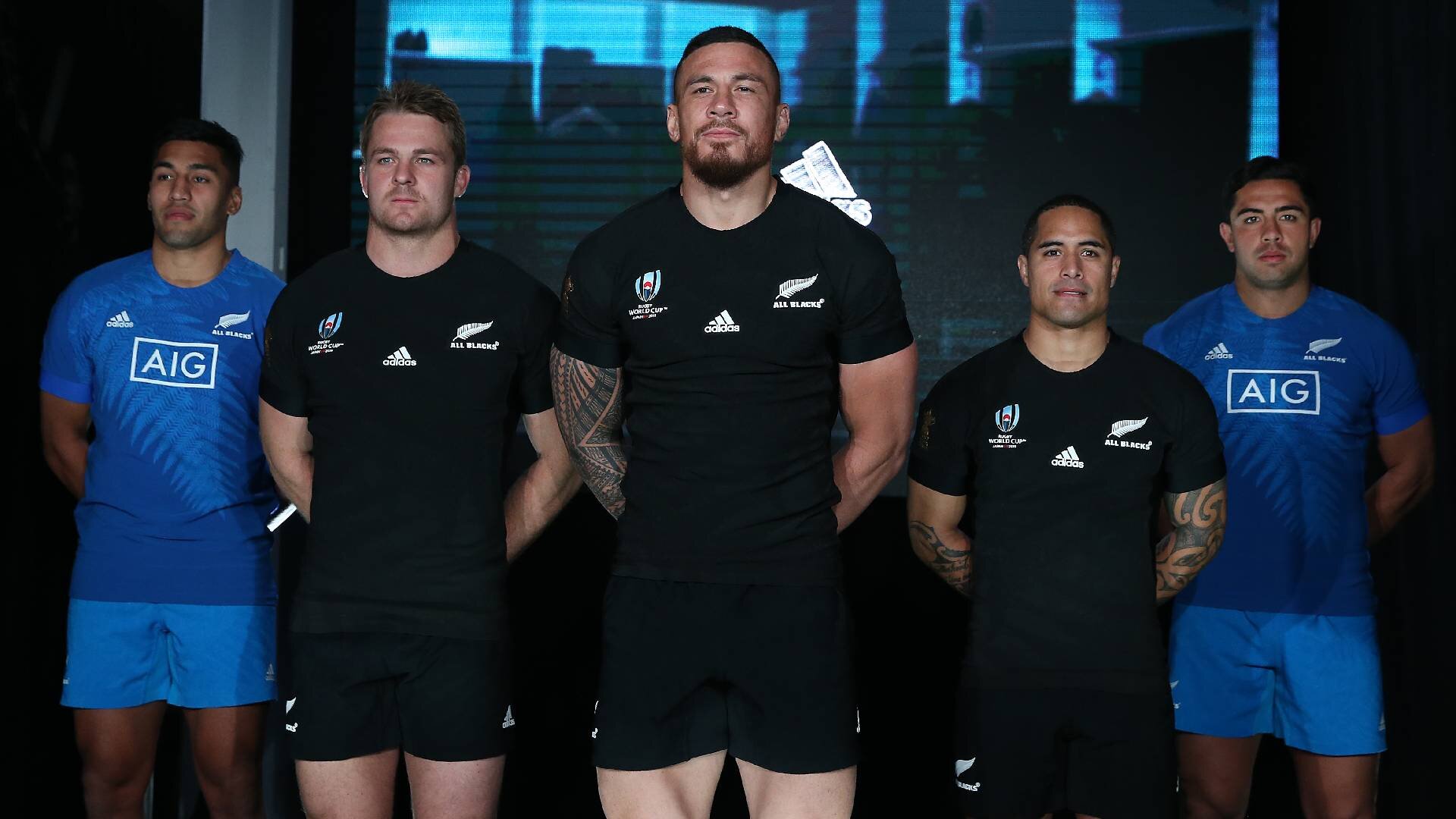Each team's greatest playing jerseys in World Cup history

The advent of a World Cup every four years not only captures the imaginations of rugby fans around the globe, but it also provides the globe’s rugby faithful with a chance to see a special new kit design for every one of the 20 nations involved.
The tournament allows teams to embrace and express their cultures and flaunt it on the biggest stage within the sport through the design of their playing jerseys, which are seen by the millions upon millions of spectators worldwide.
In an event which brings that much exposure, which is more often than not plenty more airtime than what most participating teams are used to, it makes these special World Cup jersey designs vital for unions looking to expand or establish their brands around the globe.
Consequently, fans have been treated to some spectacular jerseys over the years, with the eight previous World Cups giving teams ample chances to express and represent their country’s cultures through what they are wearing on the park.
With this year’s World Cup in Japan nearing kick-off, most teams have already released what they will be wearing in the Far East in two months’ time, with many designs catching the eye.
The same can be said since the debut World Cup tournament in 1987, which got us here at RugbyPass thinking as to which World Cup jersey has been the best for each side competing at this year’s edition of the global showpiece event.
So, here is a presentation of the best jerseys worn over the last 32 years of World Cup rugby by the 20 teams set to compete in Japan later this year.
Argentina
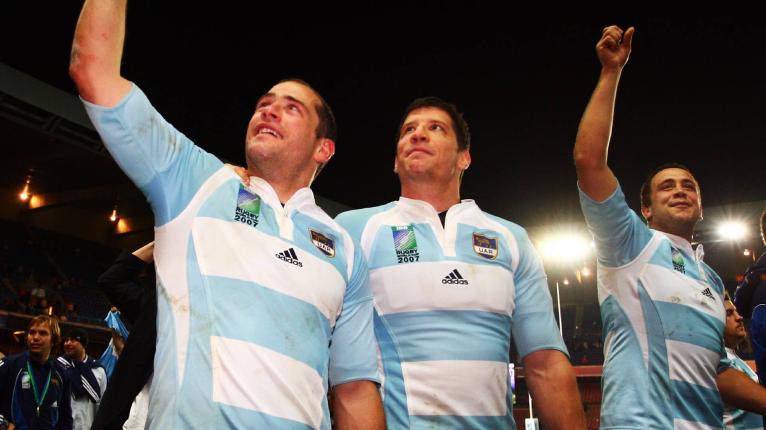
It’s hard to go wrong with the baby blue and white hoops for Los Pumas, but Adidas’ adaptation of the iconic jersey in 2007 was particularly striking as Argentina went on to stun the world by finishing in third place, toppling hosts France twice in the process and gaining recognition as a genuine powerhouse of world rugby.
Australia
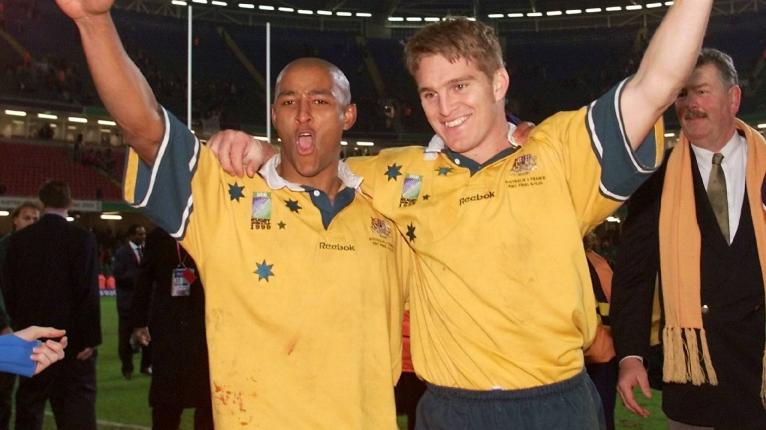
This Reebok jersey, with the dark green sleeves and the Southern Cross over the World Cup logo on the chest, is symbolic of Australia’s period of dominance in the late 1990s and early 2000s, a time where they won the 1999 World Cup, and finish runners-up in 2003. That dominance is now a distant memory, and Wallabies fans can only reminisce on that golden era when this jersey instilled fear and intimidation into Australia’s opposition.
Canada
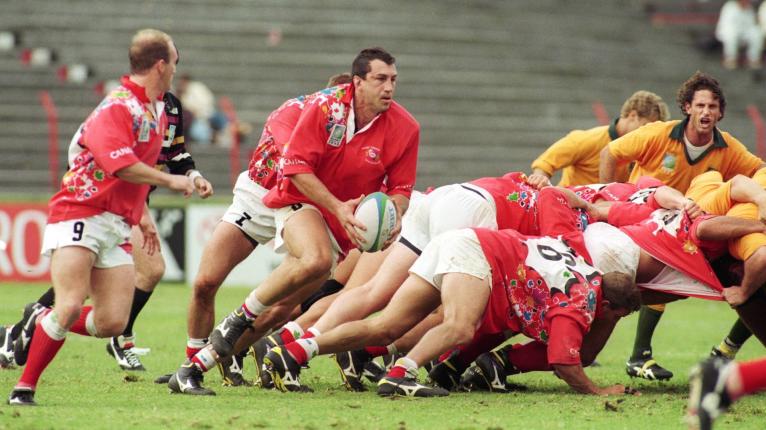
By far Canada’s most colourful World Cup jersey ever. Only the classic 1991 jersey, which they wore in their sole World Cup quarter-final appearance against the All Blacks, could challenge this rainbow-coloured maple leaf-laden jersey, but the flair of the 1995 jumper edges the simplistic yet effective kit from four years earlier.
England
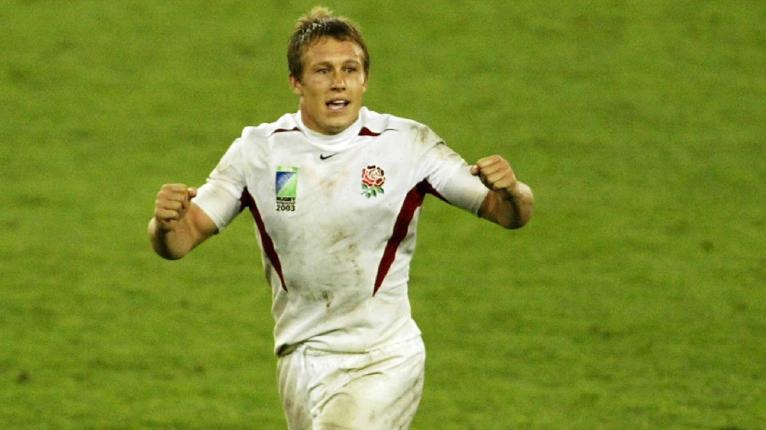
As long as England are wearing white, then there should be no issues, but similarly to Australia, their 2003 jersey is representative of a time when they were on top of the world. The famous Jonny Wilkinson drop goal that sunk the Wallabies in the last minute of extra-time in that year’s final is the greatest moment in English rugby history, and so the Nike-manufactured all-white jersey with a red trim under the arm and down the rib cage that he wore should really be considered the best they’ve ever had.
Fiji
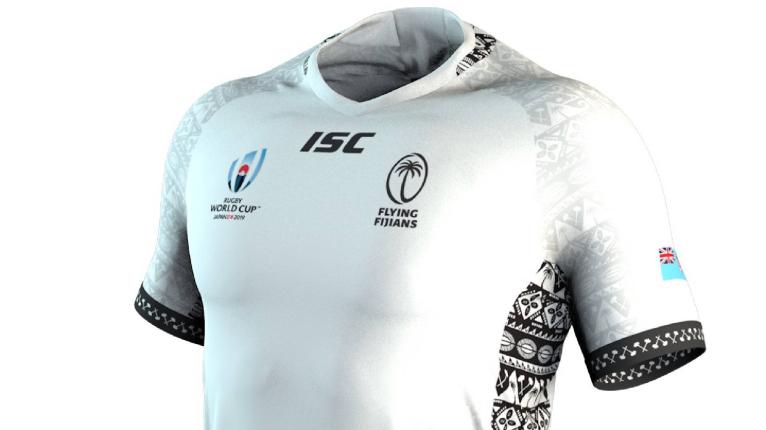
As time has gone on and the design and development of jerseys has evolved, the more appealing jerseys from Pacific nations have become. Fiji, for example, have implemented cultural designs on their white and black jerseys in recent World Cups, and ISC’s version of their 2019 World Cup jersey is a stunning one, with plenty of intricate patterns down the sides, across the shoulders and on the sleeves.
France
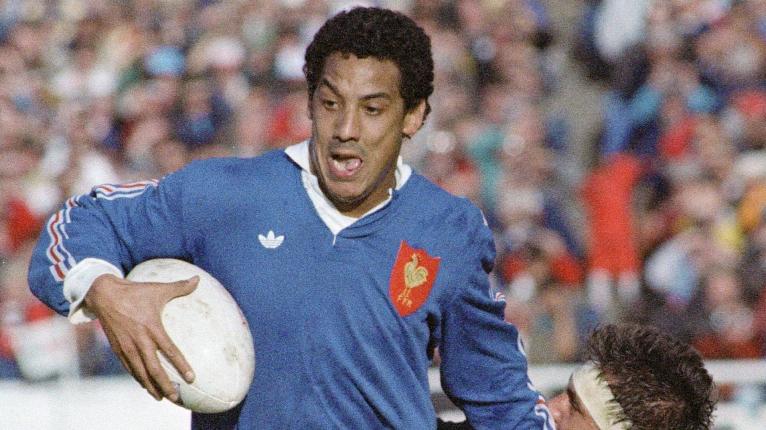
France’s jerseys for both this year’s World Cup and the 2015 tournament both had potential to take the cake, but Adidas’ take on their 1987 kit is a classic that is difficult to go past. With red, white and blue stripes lining the long sleeves, an enlarged, old-school French rugby logo on one side of the chest, and the classic Adidas logo on the other side, it makes for an iconic Les Bleus jumper.
Georgia
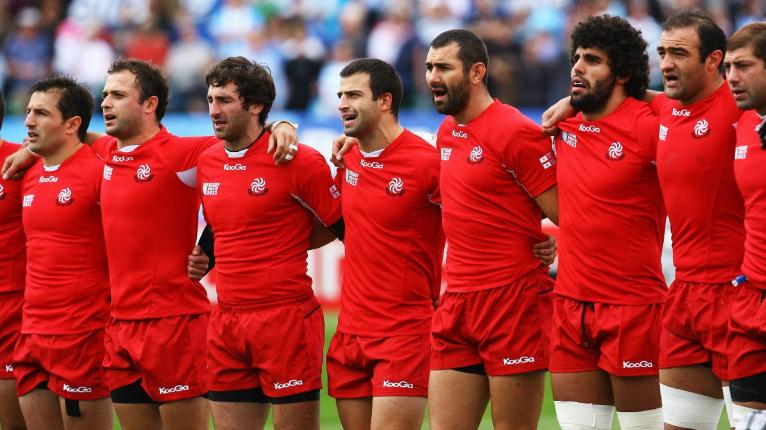
A drastic change in kit colours came after their debut tournament in 2003 saw them don a hideous purple and black combination, but Georgia have vastly improved their kit designs since then. With a red and white colour scheme to work with now, their 2011 KooGa jerseys are probably the pick of the bunch, due to how simple but sleek it looked.
Ireland
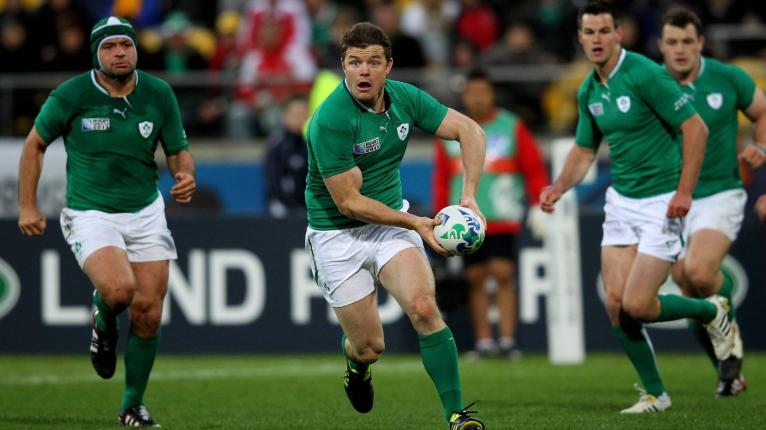
After going through all of Ireland’s World Cup kits since 1987, there was barely much change at all until the 2007 tournament, with green being the primary colour with a hint of white to accompany a big pop-up collar. Although the colour scheme has remained exactly the same, the way of which it has been used has been altered slightly over the past decade or so, and their 2011 Puma jerseys are probably the best example of that.
Italy

There hadn’t been a whole lot to rave about Italy’s World Cup kits until Adidas unleashed a beautiful design for their 2015 campaign. Sticking with their traditional sky blue jumpers, Adidas added slender diagonal stripes with a grey collar, while their navy blue shorts complemented the top half of their kit nicely.
Japan
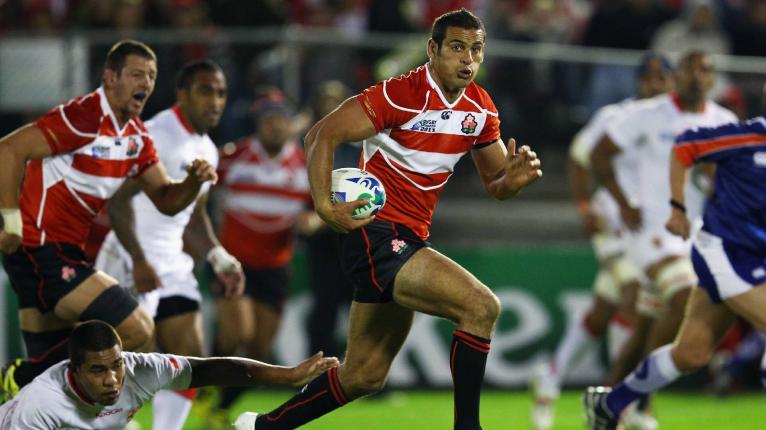
Like Argentina, it’s difficult to go wrong with Japan’s standard red and white hoops, although Canterbury haven’t done the best of jobs with a bizarre kit for their home tournament this year. The same can’t be said for their 2011 jerseys, with the number of white hoops restricted to just two across the torso. The rest of the jersey was predominantly red, aside from a few white lines encompassing the shoulders and under the hoops, and a white trip under the armpits.
Namibia

After a few horrid kits that were evident throughout the 2003 and 2007 World Cups, Namibia arrived at the 2011 tournament with a far better all-blue design provided by Puma. The change in appearance didn’t help the African minnows though, as they are still on the search for their first-ever win at a World Cup.
New Zealand

Given their name, as long as the All Blacks’ jersey is mainly black, then everything is in order for the Kiwis. However, Adidas went a step further in 2015, creating the ‘blackest jersey ever’ by shading in the normally-white All Blacks and Adidas logos on the chest, giving the New Zealanders a clean, crisp look. The 2019 jersey could have also challenged for this title had the collar made it not look like a t-shirt.
Russia
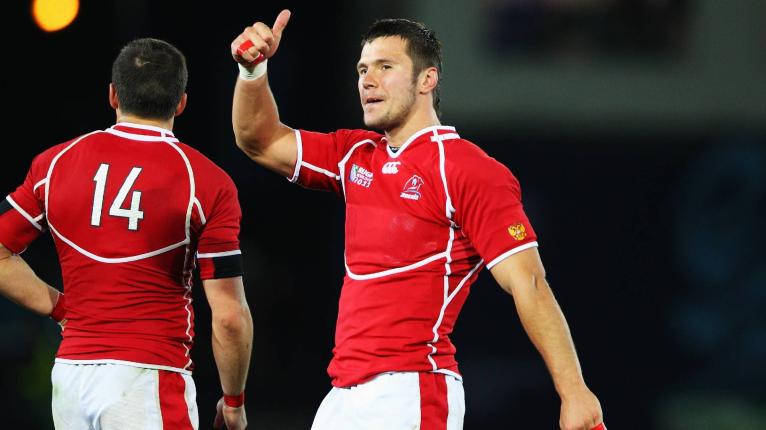
It’s slim pickings for Russia, who have only appeared at one other World Cup aside from this upcoming one in Japan. Their last outing on the global stage was eight years ago in New Zealand, when they sported an all-red look by Canterbury, with a white trim across the torso, down the sides and around the back of the neck.
Samoa
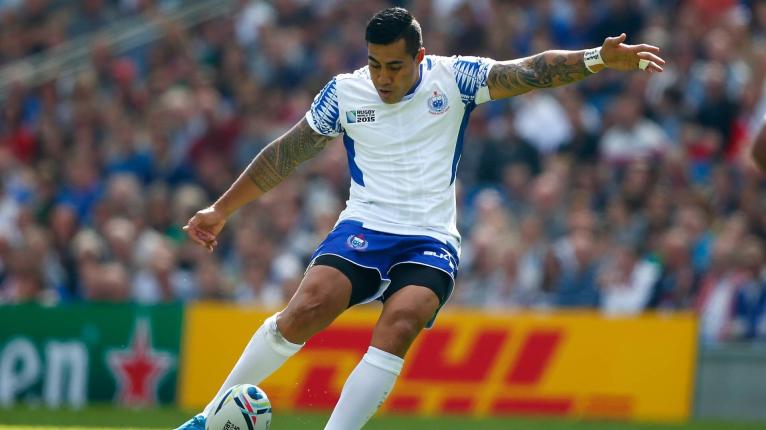
This is breaking the rules slightly as the jersey pictured above was Samoa’s away jersey for the 2015 tournament. However, it is by far the most eye-catching and wonderfully designed jersey they have ever worn at a World Cup, with the Pasifika designs on the sleeves and at the front of the jersey going a long way to making it one of BLK’s more memorable jumpers.
Scotland
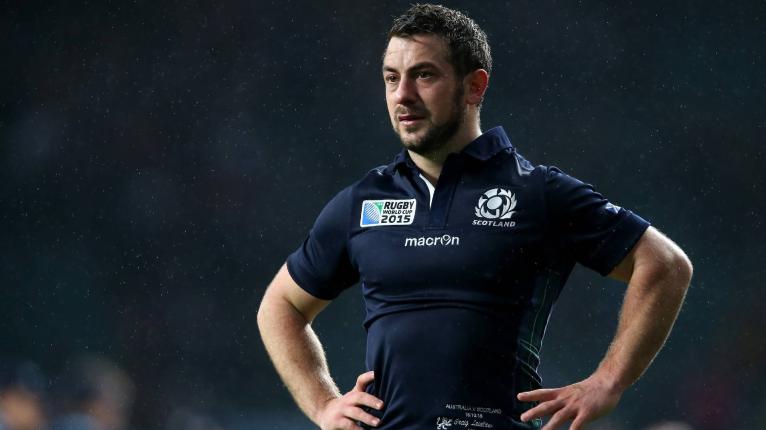
Apart from their 2007 and 2011 home jerseys and 1999 away jersey, Scotland have produced many aesthetic navy blue jerseys, and none have been better to look at than what they wore in 2015. Macron took an old-school approach by bring back the pop-up collar, and the tartan down the sides was a classy edition. The 2003 kit was also a nice take on a classic design.
South Africa
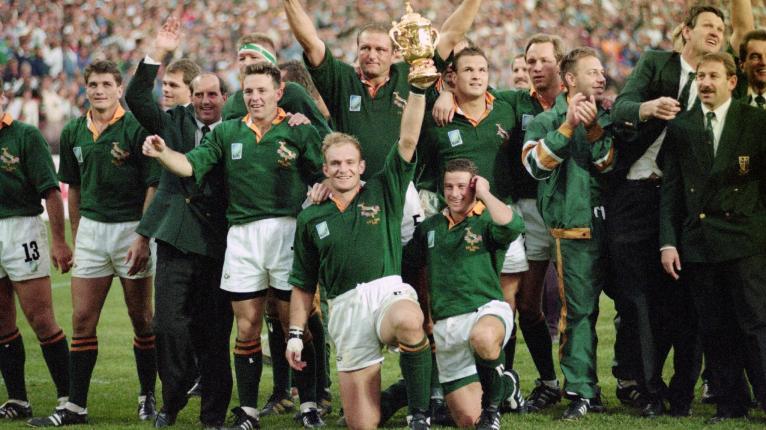
The Springboks have had a difficult time emulating the fabulous jerseys produced for World Cups in the mid to late 1990s, with the kit worn in their debut home tournament in 1995 by far the best that has ever been worn by the South Africans. The old Springboks logo was accompanied by a gold pop-up collar, giving Francois Pienaar an iconic look as he famously received the Webb Ellis Cup from Nelson Mandela at Ellis Park for South Africa’s first-ever title.
Tonga
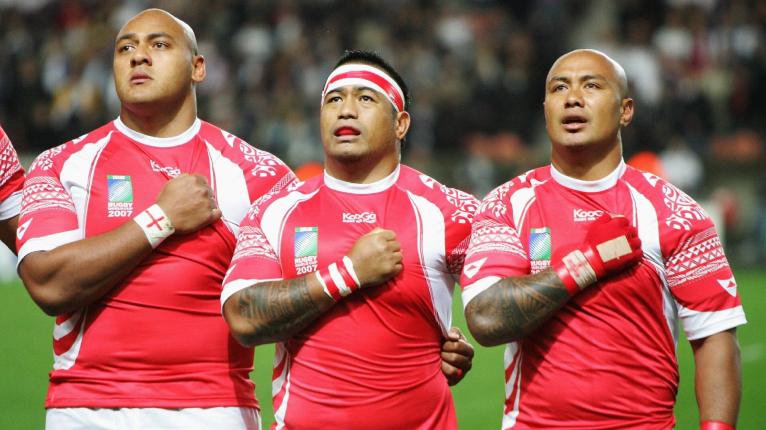
Like Fiji and Samoa, the evolution of jersey designs has seen the incorporation of cultural patterns become a significant feature on Tonga’s playing kit in the modern era, and that was best done by KooGa at the 2007 tournament. Both sleeves were heavily engulfed with traditional Tongan designs, giving them a distinct look as they pushed England and South Africa to the limit in France.
United States
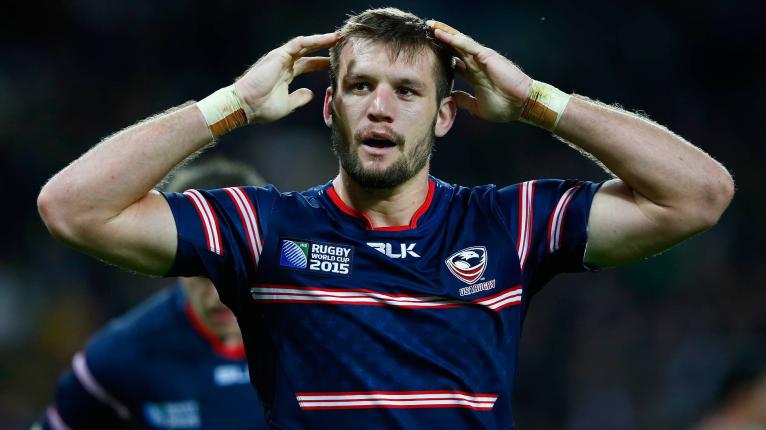
BLK mixed things up a lot for the USA at the 2015 tournament, as the Eagles had previously played in either white or red kits at World Cups. However, they wore a dark blue strip with thin red and white strips across the torso and along the sleeves, which contrasted well to give them their most compelling jersey to date.
Uruguay
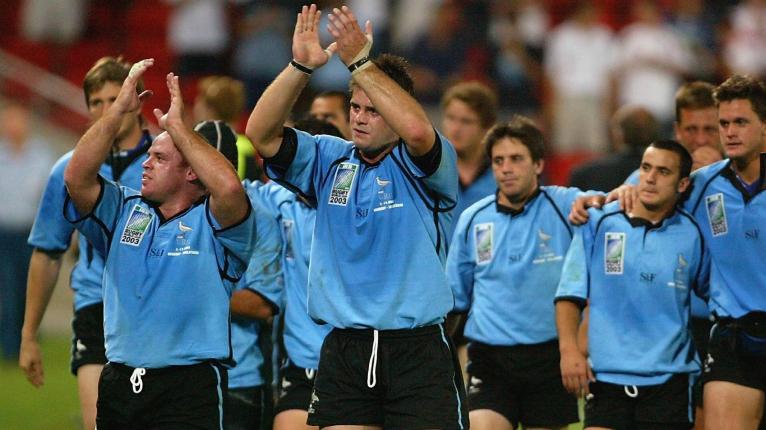
Uruguay have only played in three World Cups, but they sported a nice light blue jumper in their second appearance at the 2003 tournament. A black trim around and underneath the shoulders and on the edge of their sleeves was subtle yet not underwhelming, which added value to their overall look.
Wales
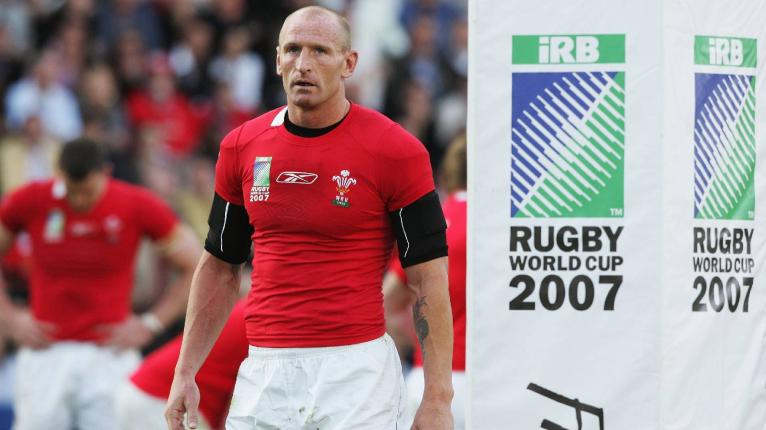
Although it was their worst showing at a World Cup of all-time, Wales’ all-red jersey with minimal white trip from 2007 was a reinvention of their famous jumper. The only white that featured was what appeared around the back of the neck, and although the players and coaches themselves underperformed in France, jersey manufacturer Reebok certainly stepped up to the plate.
In other news:























































































